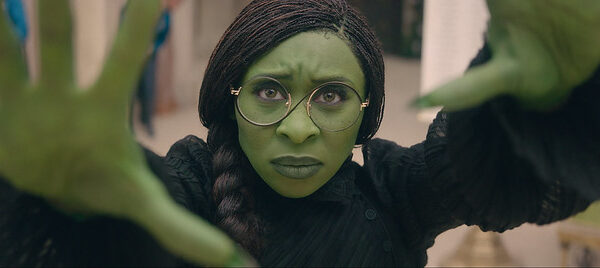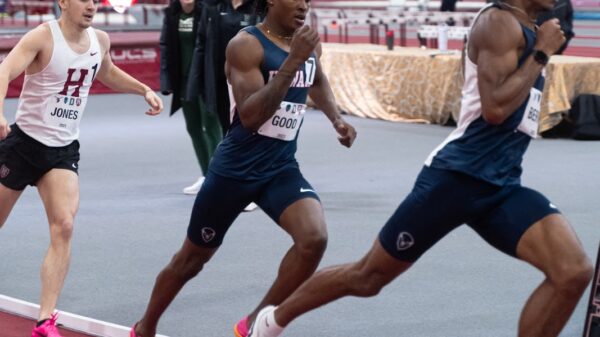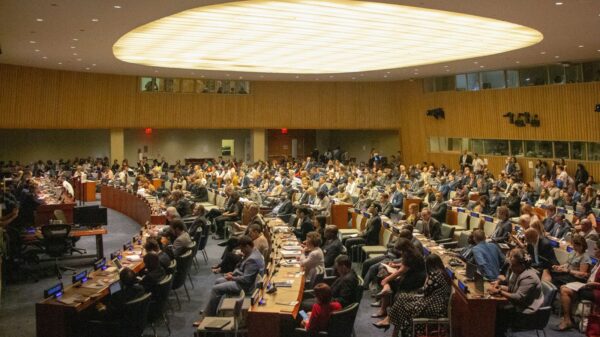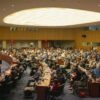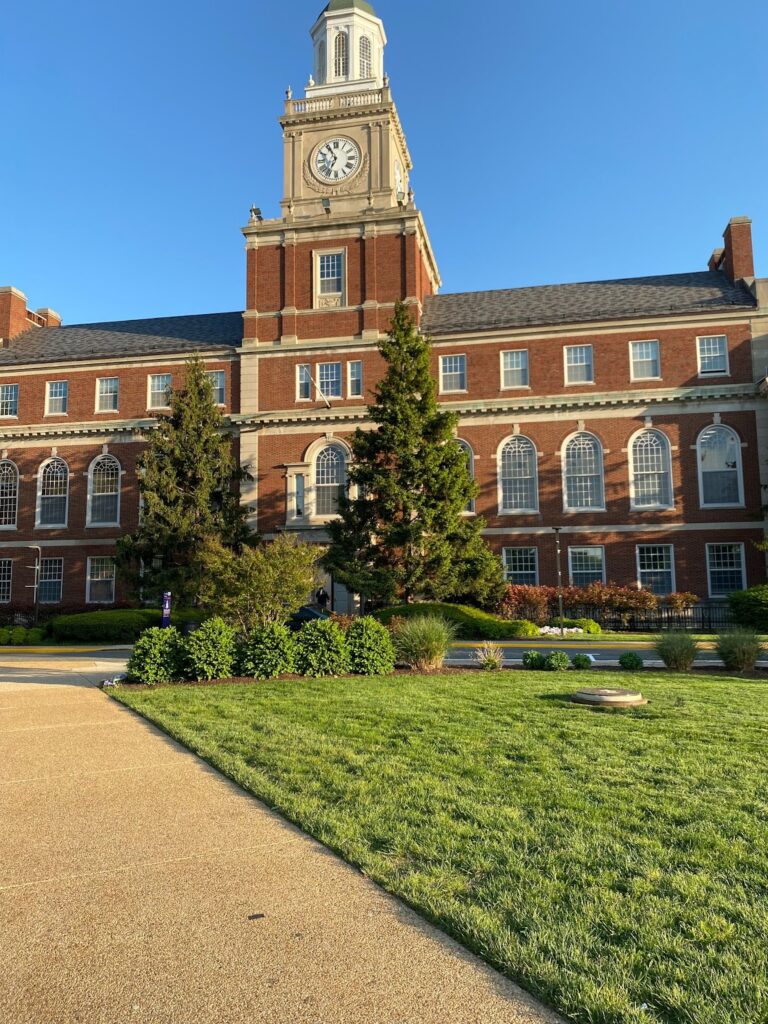
Jamaal Abdul-Alim considers himself to be a son of the Mecca.
The education editor at the online publication, The Conversation, first encountered Howard while reading 1965 graduate, Claude Brown’s autobiography “Manchild in the Promise Land.” This book shaped the course of Abdul-Alim’s life, he said, eventually leading him on the quest to discover the history behind how this university became to be known as the Mecca.
Abdul-Alim held a contest to see if students at Howard would be able to aid him in his findings. He included a $1,000 cash prize for the student who provided the best evidence as to how Howard came to be known as the Mecca. “I thought if I put up that much money, then someone would enter the contest and try to win it,” he said. “I thought it would be interesting and fascinating for students to research and answer the question.”
Though the contest was unsuccessful with only one student submitting an entry, he ended up finding success by scouring Howard’s Digital Archives.
Abdul-Alim’s curiosity allowed him to trace the evolution of the name into the context in which it is used now. Whereas the university was once referred to as “the capstone of Negro education,” the implementation of the Mecca seemed to signify not only to a new era for Howard, but a new entity that has since become distinguished from the university as an institution. According to some students and alumni, the Mecca is more than Howard as a university. It’s an energy curated by the student body, faculty and surrounding culture.
In the Islamic religion, Mecca, Saudi Arabia, is where millions of Muslims travel each year on a pilgrimage known as the Hajj. It is because of the sacredness of the pilgrimage and the city in which it takes place that the term the Mecca is so significant.
“Similarly, I believe if a student travels to Howard University to acquire some sort of useful knowledge — for themselves as well as for humanity — I believe they are in the path of God until they return,” he said.
According to Abdul-Alim’s findings and a search through the Digital Archives, the term “the Mecca” was first used by then-student, J.A. Mitchell in a 1909 edition of the Howard University Journal. “It’s just interesting to see what the Mecca meant to students before,” he said.
In the journal entry, Mitchell expresses his thoughts on the eighth president of Howard, Wilbur Thirkield, and his advancements to the university. “While congratulating the president, all Howardites should in turn congratulate themselves for the encouraging future of this institution with which they have been associated,” Mitchell said. “Howard indeed bids fair to become the Mecca, to which the eyes of our youth will instinctively turn.”
Abdul-Alim suggests that Mitchell’s term Mecca was not yet synonymous with Howard as an institution. “He’s speaking of Howard in a future sense,” Abdul-Alim believes. “So I can only deduce from what he said that Howard was not the Mecca at that time.”
By 1913, the eleventh edition of the Journal referred to the university as “a strategic institution” and “a Mecca of higher education.” Mitchell’s entry was published in the sixth volume of the journal. By the ‘60s and ‘70s, the term Mecca became used in tandem with the university, solidifying itself as an institution of higher learning and becoming a space for Black empowerment.
Abdul-Alim’s search for the origins of the Mecca began sometime after reading an article in which Carr told the New York Times in a 2019 article that the term originated during the Black Power movement from the 1960s to the 1970s.
“To me, the first use is not as significant as when the use blooms,” Greg Carr, Afro-American studies professor, said. “I associate [the term] more with the 60s and the 70s, the Black Power movement.”
Carr explained the more popular use of the term, the Mecca came from an awareness of the global issues and connection of African people across the diaspora.
“I really associate that with an awakening of a very specific era of deliberate Black consciousness, not just Black people working together trying to advance the race but [that] it must be a deliberately conscious Black place. And that’s how ‘Mecca’ is used during this period,” Carr said.
In 1968, a group of Howard students took over the Mordecai Wyatt Administration Building demanding changes to the curriculum leading to the implementation of Africana Studies and Afro-American studies. The Black Power movement led to a surge in Afros and Black students embracing their African heritage. It was a time in which Blackness was being defined, including on Howard’s campus.
The defining nature of the Mecca has led to a distinction in the separation of the ideals that govern Howard as the institution and ‘the Mecca’ as the entity that cultivates what many describe as the Howard or HBCU experience.
“Scholarship notwithstanding, tracing it notwithstanding, to me the essence of that term speaks to us as a much larger group of people. When you say ‘the Mecca,’ you can’t build a bridge to ‘the Mecca,’” Carr said.
Ta-Nehisi Coates, acclaimed writer and Sterling Brown Endowed Chair in the English department has also referred to himself as a son of the Mecca rather than Howard. He distinguished the difference between the two entities in his novel Between the World and Me. Differentiating Howard as “an institution of higher education,” Coates described the Mecca as “the crossroads of the Black diaspora” enhanced by its location in the famed ‘Chocolate City.’
Julien Thorn, a 1993 School of Communications graduate, echoed similar sentiments. “Howard cultivates great lawyers, supreme court justices and actors,” he said. “‘The Mecca’ is the spirit of the place, the culture of Howard.” Thorn believes the two are “separate places, yet one and the same.”
Abdul-Alim believes Howard students today should consider what it means to call Howard ‘the Mecca.’ He hopes his research is just the beginning foundation of a larger expansion. “What better way than to understand the terms and contexts to which the term Mecca has been applied over the years,” he said.
Students on Howard’s campus today recognize the name as being one with the university and its culture.
“To me personally, ‘the Mecca’ is just Black excellence,” John Kendrick, a sophomore political science and criminology major from Indianapolis, Indiana, said. “What’s so great about Howard and why it’s called the Mecca is that we are in D.C., which is Chocolate City, and a lot of people around the world, Black people from different countries, they come and they learn from each other [here] at Howard.”
While the nickname is well known amongst those familiar with the university, some international students shared they were unaware of the association, instead thinking of ‘the Mecca’ solely in terms of Islamic faith.
Benjamin Talton, director of the Moorland Spingarn Research Center and Howard graduate of 1996 spoke on the significance of the name in regards to both Howard University and the religion.
“I feel like when people use the word ‘Mecca’ in some ways they’re directly describing what Howard really is, it’s a gathering space for Black people from around the world,” he said.
“At the same time,” Talton continued, “when I think of Mecca, I also want to be respectful of the holy city of Muslims and Islam so we have to be conscious of the words we’re using and how we’re using them but I do appreciate Howard being the so-called Mecca.”
Copy edited by Alana Matthew






